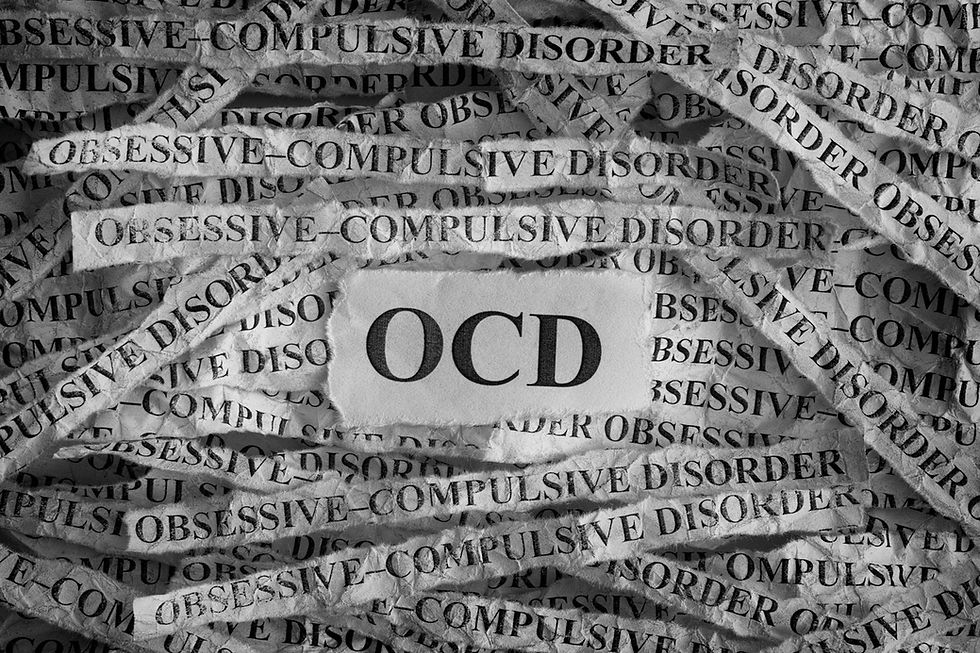The Danger of Self-Diagnosing: Why We Shouldn’t All Be Our Own Doctors
- Audrey L.

- Jan 21, 2025
- 3 min read

Raise your hand if you’ve ever sat through a 15-second TikTok and suddenly wondered if you had ADHD. Forget where you put your phone? ADHD. Struggle to read a boring textbook? ADHD. Start a project with gusto, only to abandon it halfway through? Definitely ADHD. By the end of a scroll session, you’re practically convinced you need medication and accommodations just to get through dinner with your boring uncle.
Here’s the uncomfortable truth: we’ve turned self-diagnosis into a pastime. And while it might feel validating to slap a label on your quirks, calling every sign of a short attention span “ADHD” doesn’t just oversimplify the disorder, it cheapens the reality of those who genuinely struggle with it.
The TikTok Effect
Social media is a breeding ground for relatability. Someone posts a video about forgetting their water bottle three times in one morning, and half a million comments pour in: “Omg that’s so me, I must have ADHD too!” The platform rewards content that makes people feel seen and also part of a community. The line between solidarity and self-diagnosis has blurred. And when everyone online is convinced they have ADHD, the actual condition disappears under a mountain of memes and half-truths.
What ADHD Really Is
ADHD isn’t simply a quirky inability to sit still during a two-hour lecture. It’s a neurological condition that rewires the brain’s reward and attention systems. It can mean years of struggling in school despite raw intelligence. It can mean impulsivity that wrecks relationships. It can mean fighting daily battles with shame because you want to stay organized, to finish that assignment, to call your friend back, yet your brain simply won’t cooperate. That is a very different reality from “I kept picking up my phone instead of writing that tough paper.”
The Cost of Playing Doctor
When people casually self-diagnose, they muddy the waters, chipping away at the credibility of those with official diagnoses or in need of one. Teachers, bosses, even family members start to think, “Everyone has ADHD these days; it can’t be that serious.” The fight for resources, accommodations, and understanding becomes harder.
And let’s not ignore the personal risk. Self-diagnosis is a guessing game. There’s a reason medical professionals go through years of training before diagnosing patients. ADHD is comorbid with anxiety, depression, trauma, sleep disorders, and more but not everyone who experiences these conditions has ADHD. That restlessness you’re calling ADHD? It could be untreated anxiety. Those late-night bursts of productivity? Maybe you’re just a night owl or engaging in “revenge bedtime procrastination,” not hyperfocusing. Without a proper evaluation, self-diagnosis risks misunderstanding your own mental health, potentially ignoring real issues that need care.
Why We’re All So Eager to Label Ourselves
Part of this phenomenon comes from craving an explanation for why life feels overwhelming. The modern world bombards us with notifications, deadlines, and endless tabs. Of course we’re distracted. Of course we’re restless. Sometimes it’s easier to believe our struggles have a neat clinical label than to face the possibility that modern life is simply…chaotic. Perhaps we should be asking whether the way contemporary society is constructed is the problem rather than our own brains.
This increasingly normal stress, boredom, or forgetfulness shouldn’t need to be pathologized. But it does need to be managed. And management shouldn’t require a prescription. It might mean better sleep, healthier routines, or boundaries with your phone. In fact, stimulants like Adderall act differently in those who actually have ADHD by calming their brains, not energizing them so they can pull an all-nighter.
Labels Carry Weight
This isn’t about gatekeeping. You should absolutely seek help if you suspect you might have ADHD. Many people, especially women and people of color, go undiagnosed for years because the condition doesn’t always look like the hyperactive little boy stereotype. If relatable TikTok videos push someone to seek a real evaluation, that’s a win.
But a label carries weight. For people with diagnosed ADHD, it’s more than a trendy hashtag or an excuse for distractibility. It’s a framework for understanding their brain. It’s the reason they finally get access to therapy, medication, or academic accommodations. To toss the label around casually is to strip it of that power ––and this can have devastating consequences. For many, treatment is life changing, occasionally even life saving. People with ADHD are twice as likely to attempt or successfully commit suicide.
The Bottom Line
Curiosity about your mental health is healthy. Casual self-diagnosis is not. When we all start calling ourselves ADHD, then no one has ADHD. We drown out the voices of those who actually are. Worse, we risk ignoring or misidentifying the struggles we do have.
So the next time a TikTok video convinces you that your messy desk is a sign of neurodivergence, pause. Reflect. Maybe it’s ADHD. Maybe it’s just life. Either way, the diagnosis should come from a professional, not a For You Page.



